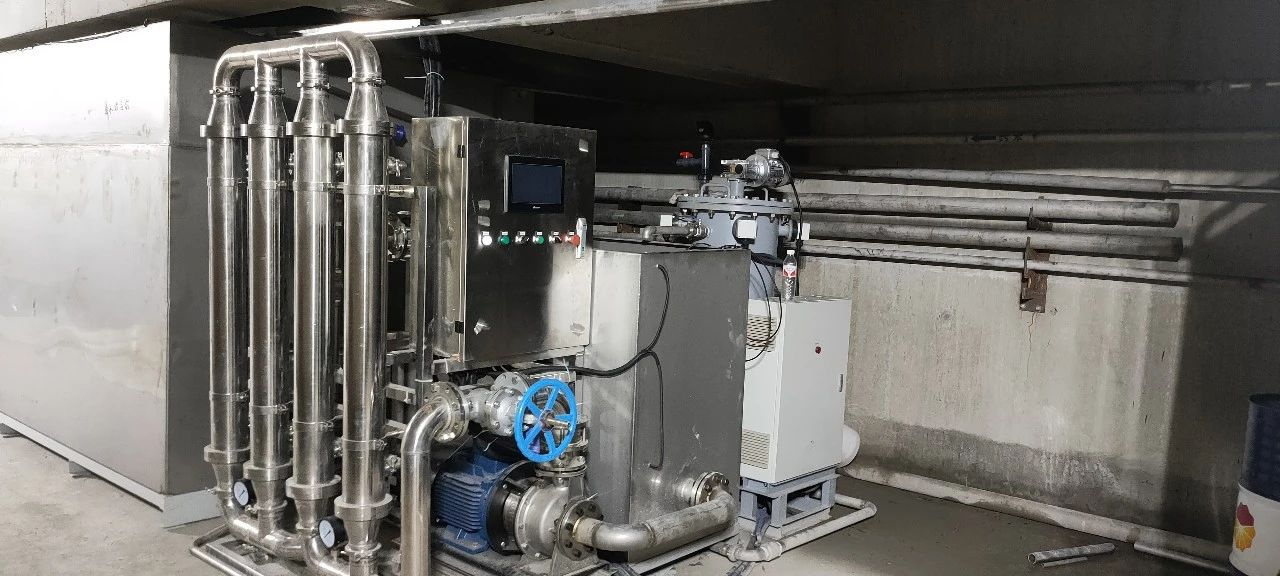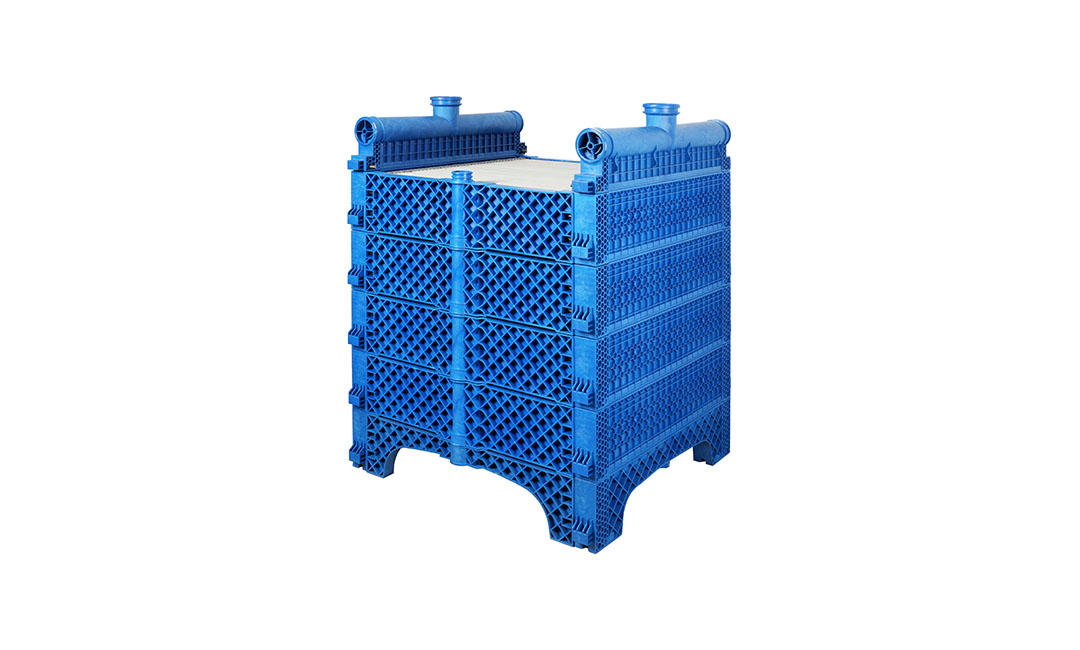Superior Filtration Efficiency
In the world of industrial operations, maintaining clean and efficient processes is crucial for ensuring optimal performance and productivity. One key component of achieving this goal is the use of advanced filtration systems that can effectively remove impurities and contaminants from various fluids and gases. SiC ceramic filtration modules have emerged as a vital technology in this regard, offering superior filtration efficiency and performance compared to traditional filtration methods.
SiC ceramic filtration modules are made from silicon carbide, a highly durable and heat-resistant material that is ideal for use in demanding industrial applications. The unique properties of SiC ceramic make it an excellent choice for filtration systems that need to withstand high temperatures, corrosive chemicals, and abrasive particles. This durability allows SiC ceramic filtration modules to maintain their performance over extended periods, reducing the need for frequent maintenance and replacement.
One of the key advantages of SiC ceramic filtration modules is their superior filtration efficiency. The porous structure of SiC ceramic allows for the effective removal of particles as small as submicron size, ensuring that the filtered fluid or gas meets the required purity standards. This high filtration efficiency is essential for industries such as pharmaceuticals, food and beverage, and semiconductor manufacturing, where even tiny contaminants can have a significant impact on product quality and safety.
In addition to their superior filtration efficiency, SiC ceramic filtration modules also offer excellent chemical resistance. This makes them suitable for filtering a wide range of fluids and gases, including aggressive chemicals and solvents that would quickly degrade other types of filtration media. The chemical resistance of SiC ceramic filtration modules ensures that they can maintain their performance even in harsh operating conditions, providing reliable filtration for critical processes.
Another key benefit of SiC ceramic filtration modules is their thermal stability. SiC ceramic can withstand extreme temperatures without losing its structural integrity, making it an ideal choice for filtration systems that operate in high-temperature environments. This thermal stability allows SiC ceramic filtration modules to maintain their performance even when exposed to fluctuating temperatures, ensuring consistent filtration efficiency over time.
Furthermore, SiC ceramic filtration modules are highly resistant to abrasion and wear, making them a cost-effective choice for industrial applications that involve abrasive particles or high-velocity flows. The durable nature of SiC ceramic ensures that the filtration modules can withstand the rigors of continuous operation without experiencing premature failure or degradation. This longevity translates to lower maintenance costs and reduced downtime, contributing to overall operational efficiency.
In conclusion, SiC ceramic filtration modules are vital for clean operations in industrial settings due to their superior filtration efficiency, chemical resistance, thermal stability, and durability. By investing in SiC ceramic filtration modules, industries can ensure that their processes remain clean and efficient, leading to improved product quality, reduced maintenance costs, and enhanced operational performance. With their advanced technology and proven performance, SiC ceramic filtration modules are a valuable asset for any industrial operation looking to achieve optimal filtration results.
Increased Productivity and Cost Savings
In today’s industrial landscape, the demand for clean and efficient operations is higher than ever before. Companies are constantly seeking ways to increase productivity while reducing costs, and one solution that has gained traction in recent years is the use of SiC ceramic filtration modules. These advanced filtration systems offer a range of benefits that can help businesses achieve their goals of cleaner, more efficient operations.
One of the key advantages of SiC ceramic filtration modules is their ability to remove contaminants from liquids with a high degree of efficiency. These modules are made from silicon carbide, a material known for its exceptional chemical and thermal stability. This means that SiC ceramic filters can withstand harsh operating conditions and effectively capture a wide range of contaminants, including particles, oils, and other impurities.
By using SiC ceramic filtration modules, companies can significantly reduce the amount of waste generated during their operations. This not only helps to protect the environment but also leads to cost savings by minimizing the need for disposal and reducing the risk of fines for non-compliance with environmental regulations. In addition, the clean operations enabled by SiC ceramic filters can lead to improved product quality and reduced downtime, further enhancing productivity and profitability.

Another benefit of SiC ceramic filtration modules is their long lifespan and low maintenance requirements. Unlike traditional filtration systems, which may need frequent replacement or cleaning, SiC ceramic filters are highly durable and resistant to fouling. This means that companies can enjoy consistent performance over an extended period, with minimal downtime for maintenance or repairs. This reliability can translate into significant cost savings over time, as companies can avoid the expense of frequent filter replacements and the associated labor costs.
Furthermore, SiC ceramic filtration modules offer a high level of flexibility and customization, allowing companies to tailor their filtration systems to meet their specific needs. Whether filtering water, chemicals, or other liquids, SiC ceramic filters can be designed to achieve the desired level of purity and efficiency. This adaptability makes them suitable for a wide range of applications across various industries, from manufacturing and mining to food and beverage production.

In conclusion, SiC ceramic filtration modules are vital for clean operations in today’s industrial environment. By removing contaminants efficiently, reducing waste, and minimizing maintenance requirements, these advanced filtration systems can help companies increase productivity and achieve cost savings. With their durability, reliability, and flexibility, SiC ceramic filters offer a sustainable solution for businesses looking to improve their operations while meeting environmental and regulatory requirements. Investing in SiC ceramic filtration modules is not only a smart business decision but also a step towards a cleaner, more efficient future.
Enhanced Environmental Sustainability
In today’s industrial landscape, environmental sustainability is a top priority for companies looking to reduce their carbon footprint and minimize their impact on the planet. One key aspect of achieving this goal is the implementation of advanced filtration systems that can effectively remove harmful pollutants and contaminants from industrial processes. SiC ceramic filtration modules have emerged as a vital technology in this regard, offering a range of benefits that make them essential for clean operations.
SiC ceramic filtration modules are made from silicon carbide, a durable and high-performance material that is well-suited for use in demanding industrial applications. These modules are designed to effectively capture and remove particulate matter, heavy metals, and other pollutants from gas and liquid streams, helping to ensure that emissions meet strict environmental regulations. By incorporating SiC ceramic filtration modules into their operations, companies can significantly reduce their environmental impact and improve their overall sustainability.
One of the key advantages of SiC ceramic filtration modules is their exceptional filtration efficiency. These modules are capable of removing particles as small as a few microns in size, ensuring that even the tiniest contaminants are captured and prevented from being released into the environment. This high level of filtration efficiency is essential for industries that produce large volumes of pollutants and need to meet stringent emissions standards.
In addition to their superior filtration performance, SiC ceramic filtration modules also offer excellent durability and longevity. Unlike traditional filtration systems that may need frequent maintenance and replacement, SiC ceramic modules are highly resistant to corrosion, abrasion, and thermal shock, making them ideal for use in harsh industrial environments. This durability ensures that these modules can provide reliable and consistent filtration performance over an extended period, reducing downtime and maintenance costs for companies.
Furthermore, SiC ceramic filtration modules are also highly versatile and can be customized to meet the specific needs of different industries and applications. Whether it’s capturing fine particulate matter in a coal-fired power plant or removing heavy metals from wastewater in a chemical processing facility, SiC ceramic modules can be tailored to deliver optimal filtration performance for a wide range of processes. This flexibility makes them a valuable asset for companies looking to enhance their environmental sustainability efforts.
Another key benefit of SiC ceramic filtration modules is their energy efficiency. By capturing pollutants and contaminants before they are released into the atmosphere, these modules help to reduce the overall energy consumption of industrial processes. This not only lowers operating costs for companies but also minimizes their carbon footprint and contributes to a cleaner and healthier environment for all.
In conclusion, SiC ceramic filtration modules play a crucial role in helping companies achieve clean operations and enhance their environmental sustainability. With their exceptional filtration efficiency, durability, versatility, and energy efficiency, these modules are essential for industries looking to reduce their environmental impact and comply with stringent regulations. By investing in SiC ceramic filtration modules, companies can not only improve their sustainability efforts but also demonstrate their commitment to protecting the planet for future generations.

